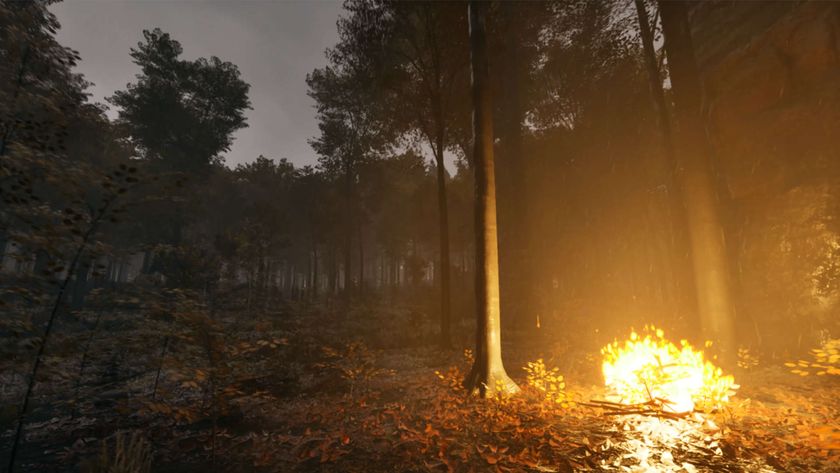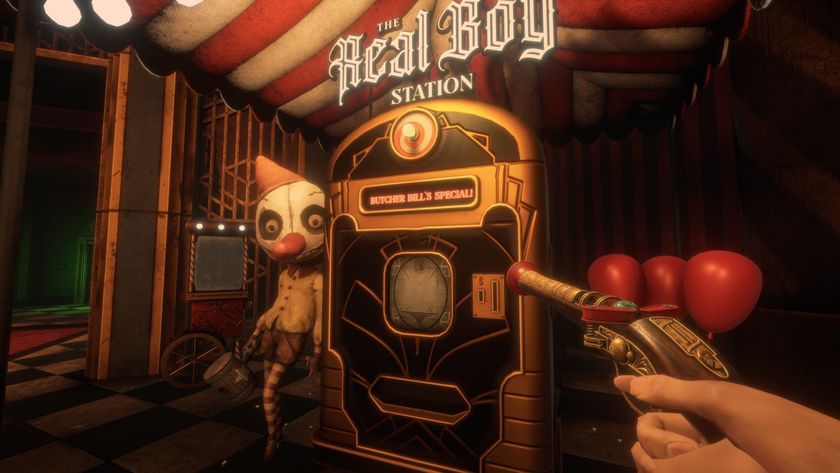Star Fox meets Knight Rider in Chorus, a next-generation space-combat shooter that blends speed with smarts
Chorus is a love letter to the old-school space-combat shooter, but with a next-gen budget
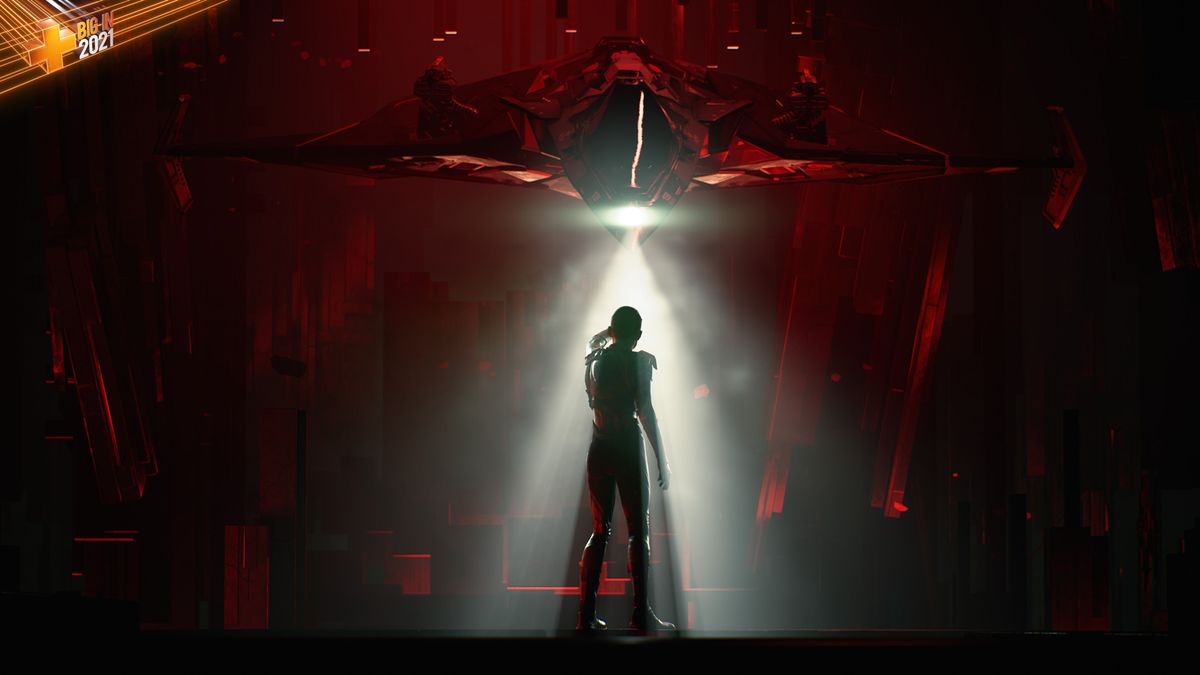
As a AAA, multi-platform title utilising the power of next-gen hardware, Chorus is a big step up for Deep Silver Fishlabs, though not a project completely out of its comfort zone. This next evolution of the space-combat genre marks a culmination of everything Fishlabs has learned with its popular Galaxy of Fire series over the last decade, as creative director Marek Berka explains.
"We started to work on a sequel [to Galaxy of Fire: Manticore], which was meant to be a transitional project to console development," says Berka. "As the first couple of iterations were made, it became more and more obvious to break the chain and start a completely new adventure." Chorus is the result of that decision; a fresh take on a classic genre that seeks to jump the space-combat shooter into hyperspace, and see where it ends up.
Cult classic
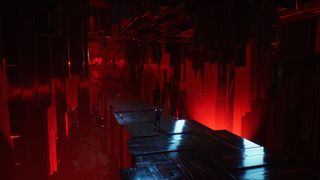
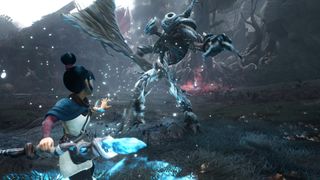
Game Chorus
Developer Fishlabs
Publisher Deep Silver
Platforms Xbox One, Series X/S, PS4, PS5, PC
Release 2021
One of the big iterations that Berka is referring to is Chorus' story, which represents a major focus for Fishlabs as the backdrop to your cockpit shenanigans. You play as Nara, a pilot who recently fled her position as second-in-command of a deadly cult, The Circle, determined to redeem herself of her crimes by uniting the galaxy against the organisation she once considered family. Oh, and there's one other thing – your starfighter, Forsaken, is sentient, and the closest thing you have to a best friend in Chorus' hostile galaxy.
"We wanted to incept into the game an uncommon character, who does not have an obvious origin, but can become an intimate buddy along the way," explains Berka of the self-conscious spaceship. "For a space game, where most of the time we see just the ship fly, we needed to build a connection between Nara and the player so that the story is believable. Adding another character into the mix, the one which spends most of the time on-screen, felt like a natural choice."
Nara's connection with Forsaken bleeds heavily into Chorus' gameplay, too, with the pair able to chain their individual abilities together for unique combo attacks against the legions of Circle enemies scattered across solar systems and space stations. Combat is as fast and furious as you'd imagine it to be, but with a greater focus on experimentation and improvisation than Galaxy of Fire players might be used to from Fishlabs' back-catalogue. Burka says that the team wanted to fold in "as much spectacle into Chorus as we possibly could," but adds that nailing the game's tactical dimension was also just as important for determining the ebb and flow of its real-time dogfights. "As they progress, the player widens their roster of powers and abilities, and are free to experiment with them. Chains are especially powerful, not only damage-wise but also for positioning and evasive purposes. Skilled players, mastering what the game has to offer, can fight and fly as an almost untouchable entity, using their environment and understanding each type of threat."
You won't spend your entire time role-playing as an intergalactic Maverick in Chorus, however. Fishlabs' universe is handcrafted, full of mysteries and secrets waiting to be discovered, encouraging player exploration as a form of respite between its more frenetic battles. This is another area where the studio hopes to push the space-combat shooter forward; while other games in the genre are typically all dogfights and no catnaps, Chorus wants to find a more sustainable rhythm. "We don't have an endless stream of action," says Berka. "We want the player to take a breath, look for hidden sites, maybe loot something, visit a station, buy equipment, and then jump into another battle, where all of those new upgrades will be put to the test. Exploration brings unique rewards, even power-wise, but no one is forcing the player to look for them. Most of the critical sites have a significant distance between each other, so exploration can't be completely bypassed, but the player must decide what to do about it."



"Skilled players can fight and fly as an almost untouchable entity."
Marek Berka
Given that Chorus debuted at Microsoft's first showcase for the Xbox Series X last year, Fishlabs intends to put the advances of both it and Sony's next-generation console to good use, though the game will also be available on PC, PS4 and Xbox One when it launches sometime later this year. For Johannes Kuhlmann, the studio's head of core technologies, it's the supercharged SSDs powering the next-gen consoles that offer real pathways for raising the bar with Chorus' production value.
Sign up to the 12DOVE Newsletter
Weekly digests, tales from the communities you love, and more
"Aside from better graphics, what's really important for a fast-paced combat shooter is performance," he tells GamesRadar. "We can provide both higher frame rates as well as reduced latency on the next generation. Ultimately, that means you'll have better control of the ship and a better experience taking down your enemies. Chorus has several open-world elements where the SSD helps us offer larger environments with a better streaming experience as well as reduced loading times. You can spend your time exploring instead of waiting. With ray tracing in place, a greater fidelity in atmosphere can be established, and those breathtaking moments can be more genuine."
Fishlabs is even attempting to get Chorus running at 60FPS in 4K with ray-tracing, though Kuhlmann admits that finding the right trade-off between visuals and performance remains "a never-ending battle", adding that "while we're able to achieve either goal right off the bat, we're not quite there yet at hitting that sweet spot."
Nevertheless, with its sights set firmly on the limitless potential of the final frontier, Chorus is destined to dazzle and delight players in 2021. Its iterative, expansive approach to fleshing out an age-old genre will no doubt subvert expectations of veteran dogfighters acclimated to its rhythms, while ushering in a new generation of those who've missed out on the inimitable catharsis of arcade space-combat. Having a sentient companion for a spaceship is really just the icing on the cake.
Big in 2021 is GamesRadar's month-long celebration of the new year. Every day, we will be exploring the most anticipated games on the near horizon with brand new previews and exclusive developer interviews.
I'm GamesRadar's Features Writer, which makes me responsible for gracing the internet with as many of my words as possible, including reviews, previews, interviews, and more. Lucky internet!
Most Popular





